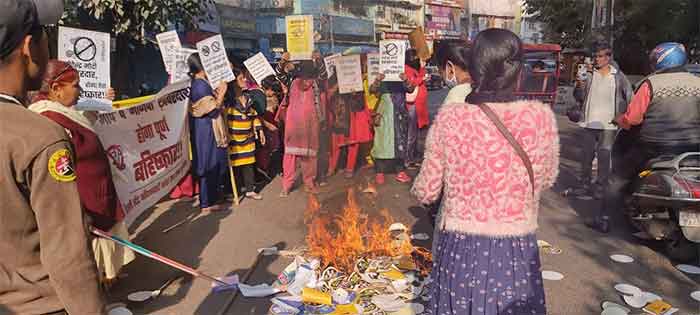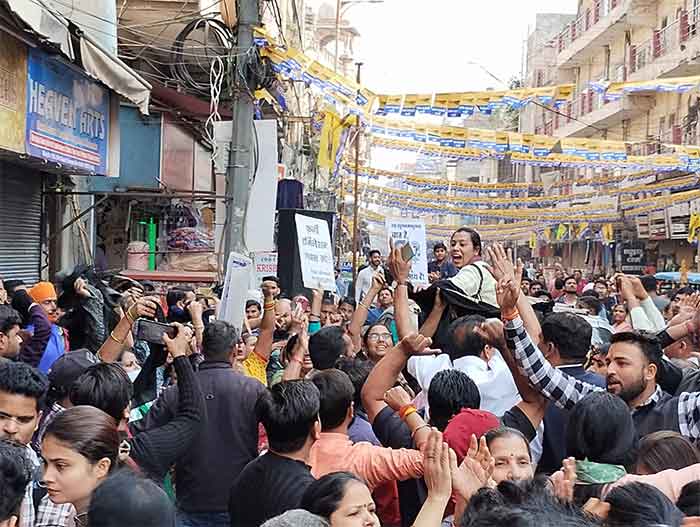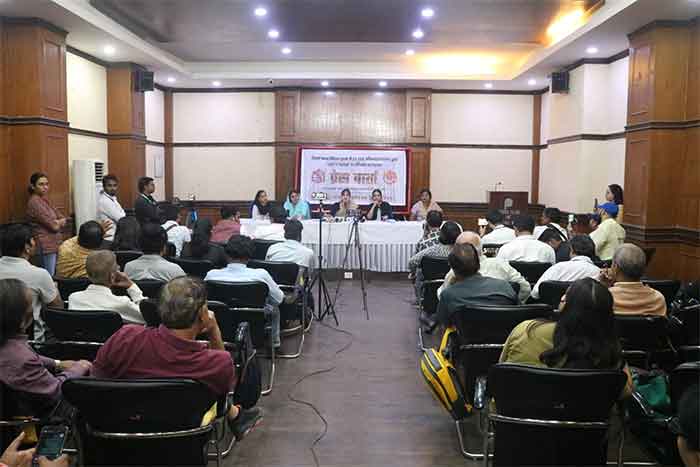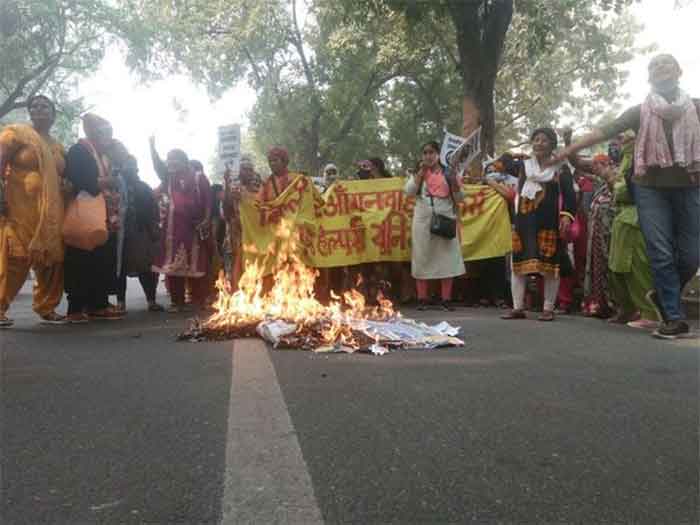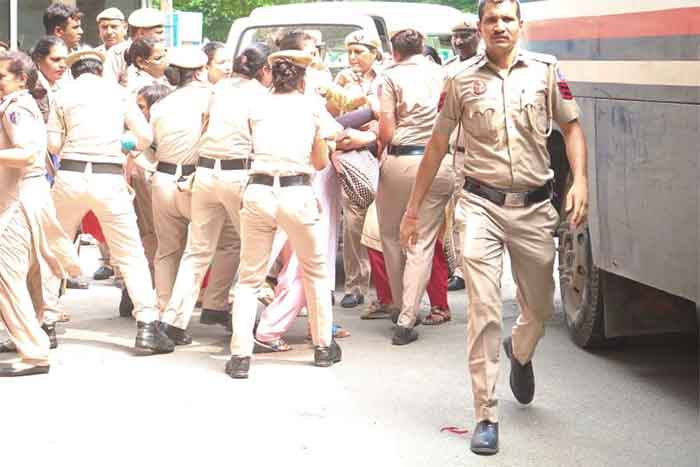Co-Written by MD Tabrez Alam & Dr Md Afroz
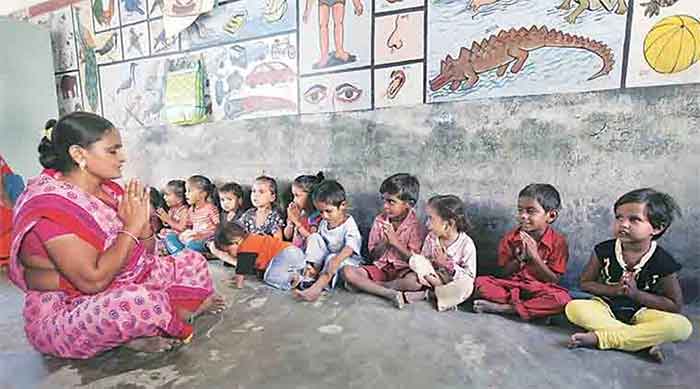
The new pandemic Covid-19 engulfed entire world with high and low intensity differing country wise. India has severely affected reached at 2nd most cases in the world. It brought lots of challenges at the same time compelled to restructure the governance system. The use of Information and communications technology (ICTs) ensure maximum output with minimum cost inputs. Therefore, Government of India took certain initiatives that is going to resolve most of service related problems and it will bring efficiency & transparency in governance. If we look at the data the country like India where two-third of the population lives in poverty, whereas 68.8 per cent survive less than 2 $/day whereas 30 percent even below 1.25 $/per day (SOS). There are 13.77 lakh anganwadis, 12.8 lakh workers, 11.6 lakh helpers (ET, 17 Dec, 2019), approx. the country and approx. 10 crore beneficiaries including children under six years, pregnant women and lactating mothers. Under the guideline of Integrated Child Development Services (ICDS), an anganwadi worker needed to cater a population of 1000 in rural and suburban areas. The Anganwadi worker is a person who plays a crucial role to bridge the gap between people and healthcare centres to accomplish the education, nutrition, and health of the children up-to six years. The basic functionaries of the ICDS are the Anganwadi workers and helpers whose responsibilities are to run the centres and implement the schemes with the coordination of various stakeholders and monitoring agencies. Anganwadi centres deliver a bundle of services such as supplementary nutrition, pre-schooling, non-formal education, health check-ups, immunization, referral services, and nutritional education. The recent reports on media that 3,62,940 anganwadis centres do not have toilet facilities, 1,59,568 centres don’t have drinking water (ET). Media reports raised the anganwadi workers problems, they are feeling overburden apart from their primary work (maintaining registers, attendance sheet, weight, daily diary, vaccination, and home visits) In addition, they have to work tasks like BLO duties, surveys, etc.
The implementation of new policies and programme like digitalisation of anganwadis would be challenging and vague. The current change in the attendance system has added pressure on the workers, the state like Delhi and MP workers need to mark their attendance every morning by sending live locations, photos via WhatsApp groups to their supervisors. The Delhi government assured to reimburse mobile/internet bills, but was not fulfilled. Other serious issue is that the given smart phone hang up because they can’t delete the pictures as officials may ask to share them as proof in anytime. These small issues is obstructing the very agenda of e-governance. Post 1990 Indian government has opted towards a compressive policy and outline for improvement of nutrition through direct, or indirect methods and instruments. The focus has been put more on food supplements, but there is less attention on non-food determinants of nutrition like proper infant feeding, timely immunization, health, hygiene, and appropriate caring practices. There are several reports and policies which direct there is a need to reach and improve the condition of most marginalized communities, as they are in the worst situation even though we have universal programs on nutritional and educational intervention and so far we haven’t reached up-to mark in this regard.
To counter COVID-19 pandemic minimum social contact promoted, the ICT enabled to deliver services at door and government of India also took initiatives in its governance. It provide smartphones for monitoring the services offered at anganwadis centres that collected data in identifying 12,000 children severe caught in malnutrition in 46 districts of six states through this very initiative. The concerned ministry with the help of partner organization provided android phones in 62,000 anganwadi centres (India Today) of 6 states to track the services, and interventions related to the anganwadi centres. It would also help to identify daily reports of children whether they have been provided adequate food and their weight status, etc, and the project has been implemented in 47, districts of AP, Bihar, Jharkhand, MP, Chhattisgarh and Rajasthan. The importance of early childhood care is essential for the human foundation. The above discussion push for a substantial improvements in the anganwadis at both level, children enrolment need to be prioritize and staff level require improvement in essential facilities such as drinking water, electricity, toilets for each, and every Centre.
The most way forward is to adopt an inclusive approach to reach the target groups especially vulnerable community. So as it promote the level of nutrition to the children, pregnant and lactating mothers. The active participation of civil society and community will ensure improvement and innovation in this regard. So far the mainstream media has not able to portray clearly about the understanding of undernutrition and the differences between nutrition, equate poverty, and lack of nutritional food among the general masses. Even non-governmental organizations and community participation are weak in this regard. It has been identified in the policies that Indians have increasement on the nutritional level and developing this at many levels, hence the new initiatives and programs can work effectively on people’s engagement to achieve the nutritional goal and to secure the nation. There is no doubt that the decentralization of governance has helped to implement the programs from top to bottom, and the Anganwadi centres under ICDS schemes is one of the best examples from India. However, the Indian state must recognize and appreciate the contribution of these frontline workers as they have played a very important role in delivering the basic services from macro to micro-level even during the nationwide lockdown and the basic demands made by these workers need to tackle on an urgent basis. Further improvement in building upon the existing capacity of workers through the integration of skills, methods, knowledge, perception, and experience to improve the expertise of the workers for achieving the target.
MD Tabrez Alam PhD Scholar at Indian Institute of Dalit Studies, New Delhi.
Email: [email protected],
Dr Md Afroz Asst. Prof. at Dept. of Political Science, MANUU, Hyderabad
Email: [email protected]
SIGN UP FOR COUNTERCURRENTS DAILY NEWSLETTER

